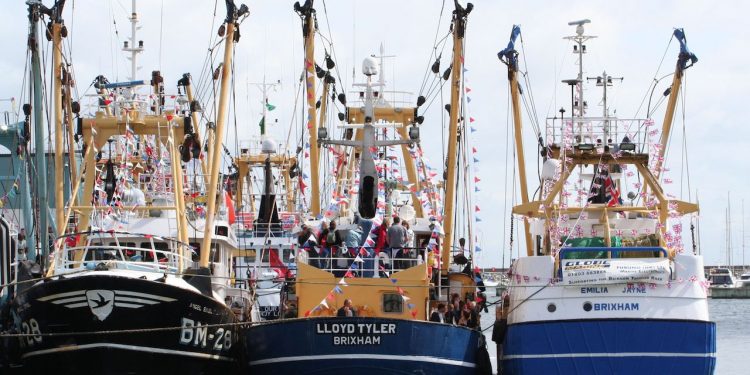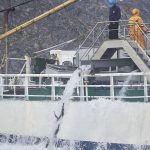According to the NFFO, the Scottish Fishermen’s Federation’s letter to the Prime Minister setting out its criticisms of the Trade and Cooperation Agreement with the EU has been replied to. But No 10 has yet to respond to the NFFO, representing the industry south of the border.
There is speculation that Scotland may be getting priority as elections for the Scottish Parliament are due in May, with a second referendum on the union hanging in the balance.
Fears are mounting south of the border that the lion’s share of additional quota secured as part of that Christmas Eve deal will be used to placate nationalist sentiments in Scotland.
‘Then there is the question of how the £100 million, put aside for the fishing industry, as the booby prize will be allocated,’ an NFFO spokesman commented, adding that Joint Fisheries Statements, currently in development, that will form the basis of future domestic fisheries policy is another area where English nervousness is marked.
‘The industry south of the border has long pointed to the anomaly that, unlike the devolved administrations, it has no ministerial champion, unencumbered by dual responsibilities for the UK and England. Bulk pelagic landings boost Scotland’s claim to be the preeminent fishing nation in the UK but in fact there are more boats and fishermen outside Scotland than inside,’ the NFFO states.
‘There are real fears that their interests will be marginalised in the forthcoming scramble to save the union.’
The NFFO states that it is looking for equity and fairness in the way the English fleet is treated.
‘Fishing is markedly more diverse in England than north of the border and faces the challenge of continued access for EU to fish within six miles of the shoreline in additional to acute quota shortages. Export difficulties affect English exporters every bit as much as those of Scotland, but it is the latter that hits the headlines and for which a dedicated taskforce has been established,’ the NFFO’s spokesman points out.
‘Leaving aside whether the taskforce can add value to what is already being done is a moot point, but it is the signal that is being sent – Scotland matters, England doesn’t – that is the general perception around the English coastline. The current real and present danger, as we try to find a way forward after the catastrophic outcome of the TCA, is that we will now be forced to play second fiddle to devolution and independence politics.’









